As our publisher Remco Janssen embarked on his summer break this week, we at Silicon Canals wondered how Dutch startup founders, entrepreneurs, and business leaders are balancing work and downtime.
The life of an entrepreneur is akin to living on the edge. You have to be dynamic, proactive but also present.
In a challenging economic climate, this act of being present but also being able to unwind can get difficult.
But as a society that has prioritised mental health and one that has shunned the hustle culture, Dutch entrepreneurs are nailing the balancing act. Sometimes, it requires doing away with the idea of summer break.
A working summer
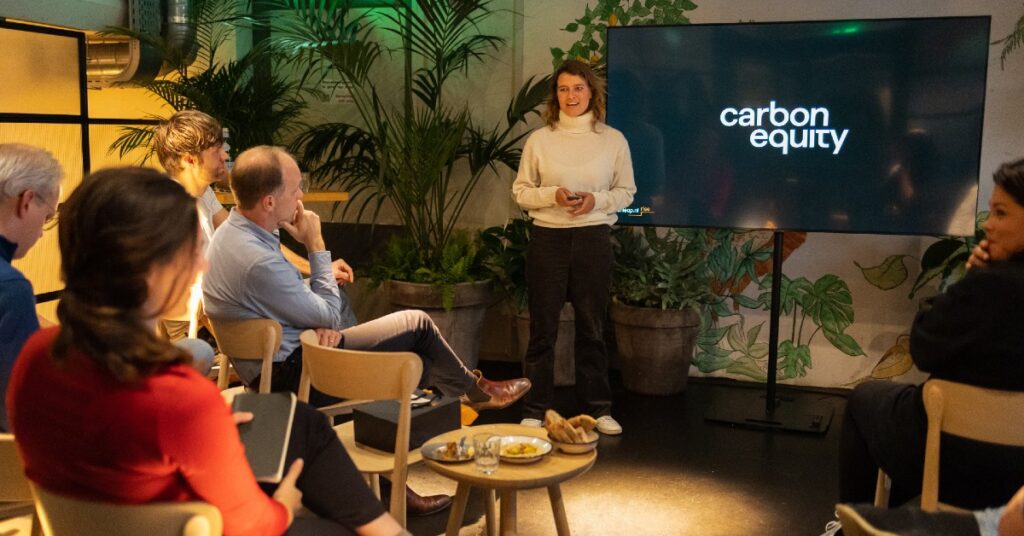
For most entrepreneurs, the summer hasn’t been any different from months preceding it.
Jacqueline van den Ende, co-founder of Carbon Equity, says she worked throughout the summer and is taking leave only on August 24.
“We are attending a wedding in Australia of a close friend and will stick around for two and a half weeks to make the most out of this very long distance trip,” she says.
Van den Ende, who has made climate investing accessible, doesn’t shy away from admitting that it is “very hard not to work.”
She adds that her goal during the trip to Australia is to unwind, read, think, and fully recharge for the fourth quarter or busiest time of the year.
Sander de Klerk, Founder & Chief Rolling Officer at Amsterdam-based The Good Roll is one of those entrepreneurs not going on holiday this summer.
The Good Roll has had such a busy year with funding and expansion to Asda in the UK, De Klerk has decided to stay put.
“I try to unwind when the sun is there to go home earlier,” he says.
“Unwinding is quite a challenge,” says Lemar Bachtiar, Co-founder and Chief Financial Officer of Authic Labs.
He says the challenge is accentuated by the fact that Authic Labs is a high-tech company in a constantly changing market.
“Every decision and action I take as an entrepreneur, even during a break, will have a direct consequence on the company,” explains Bachtiar.
Even while on the move, Bachtiar says his mind is constantly brainstorming and strategising on the next steps for his Web3 startup.
However, not everyone is out of luck when it comes to enjoying summer break.
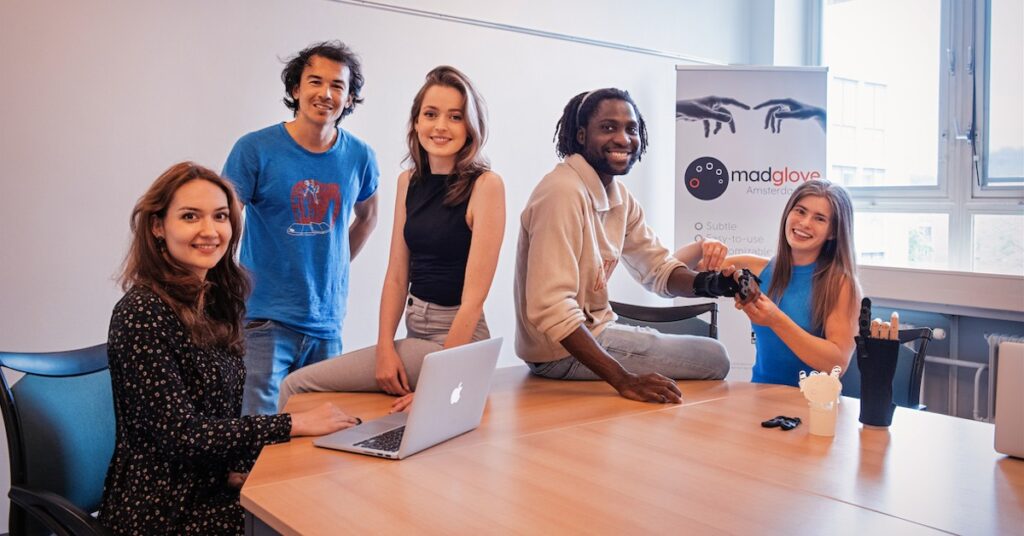
Tobi Makinde, co-founder of medical aid startup Madglove, says having five founders in the team makes it easier to get away “for a few days off to travel and relax once in a while without having to worry too much.”
Labfresh co-founder Kasper Brandi Petersen makes a critical observation about the life of an entrepreneur.
As an entrepreneur for 10 years, he has started to realise that the “biggest expectations towards how many hours entrepreneurs have to work comes from ourselves.”
He adds that his investors and employees aren’t worried when he is offline but even then he didn’t feel the need to take a longer period off this summer.
A year in which Labfresh has raised a new funding round and hired a lot of new people, Brandi Petersen says he has used summer by spending long weekends with family and friends in Ibiza and the Danish countryside.
“My only 7-day trip is hiking in Slovakia in September,” he says, before adding that as a resident of Jordaan, the busiest part of Amsterdam, his idea of unwinding is to be in places “where there is not a lot to do except for relaxing and bonding with great people.”
Impractical choice
Most of these Dutch startup founders acknowledge that disconnecting entirely is no longer a practical choice.
“For me, it’s not practical during short trips,” Brandi Petersen. He adds, “Because it takes me a couple of days before I enjoy being disconnected.”
When asked if disconnecting entirely is a practical choice, Van den Ende argues that it is actually the opposite.
She explains, “We often tend to wait for the weekend or a holiday to disconnect.”
One of the important things that Van den Ende told me is that disconnecting entirely is an individual choice driven by many factors.
She says many successful and particularly happy people have managed to disconnect despite external circumstances and workload. “I am not quite there myself though,” she says with her trademark candour.
Bachtiar goes on to say that complete disconnection is not only impractical but also unthinkable for a startup like Authic Labs, which is in its critical growth phase.
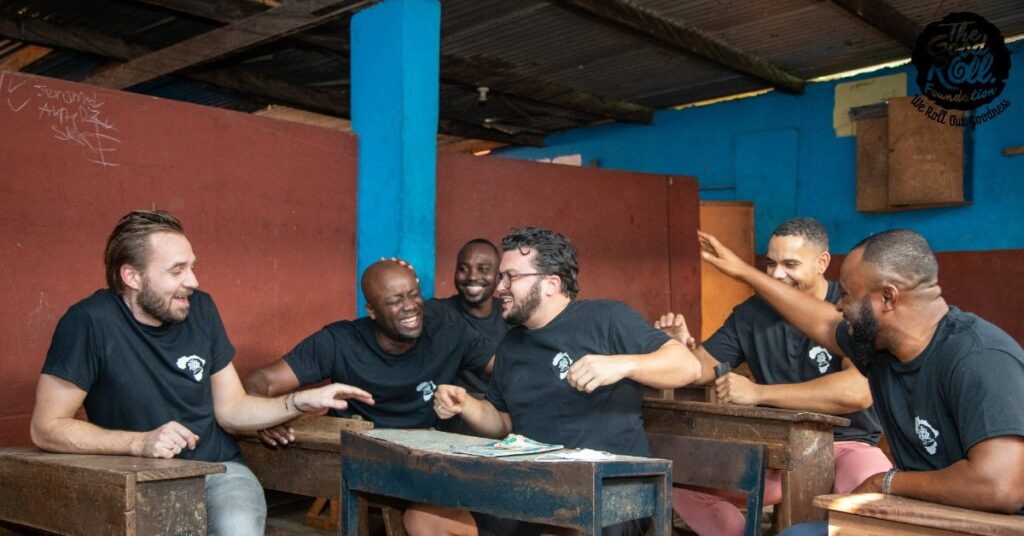
Both De Klerk and Makinde are in favour of disconnecting as a way to think clearly and set goals for the future.
“I think you have to get your own rest,” says De Klerk, “I do meditation every morning and also cold water baths.”
Makinde says one of the challenges this year has been rising cost of travel due to global economic challenges.
For Bachtiar, the challenging economic climate brings heightened pressure to ensure Authic Labs doesn’t just survive but also thrives.
“Every moment away feels like an opportunity missed, making full disconnection near impossible,” he comments.
For Van den Ende and Brandi Petersen, the economic uncertainty and inflationary challenges haven’t played a spoilsport.
Van den Ende adds that she hasn’t had sleepless nights just yet. “Economic conditions are challenging but Carbon Equity has been going pretty strong,” she explains.
With revenue growth and profitability on track, Brandi Petersen says he will worry about disconnecting only when Labfresh’s cashflow “gets too tight.”
Summer activities
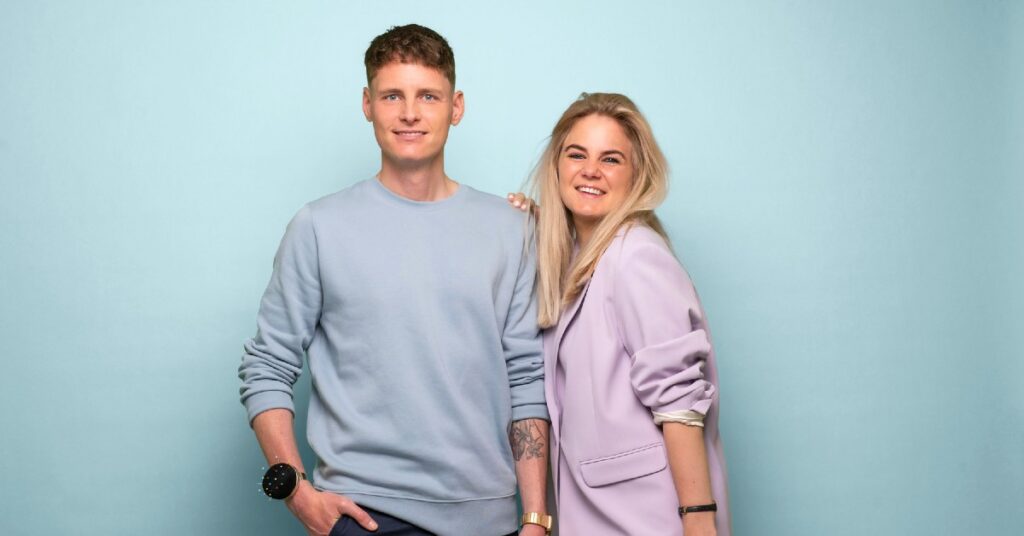
All work and no play not only makes Jack a dull boy but even successful entrepreneurs.
In order to stay active and well energised, Dutch entrepreneurs are engaging in a variety of activities.
During her trip to Australia, Van den Ende is hoping to engage in a “lot of hiking, surfing, and road-tripping.”
Brandi Petersen’s preferred activity to unwind is hiking and summer houses but he shuns the idea of big city trips.
De Klerk plans to swim and spend holiday in September with the family while Bachtiar has planned a short but productive break with a trip across the US.
“While the primary goal is relaxation, I’ll also be dedicating significant time to work, ensuring a balance between unwinding and staying on top of my responsibilities,” he adds.
While Europe has been experiencing heatwaves, the weather has been nicer in the Netherlands and Makinde is making good use of it by travelling within the country and also to neighbouring countries.
For these entrepreneurs, summer activity isn’t just about having fun but also engaging with the community they visit.
De Klerk says he always engages with the community he visits while Makinde says his interest in the community comes in the form of visiting as a local rather than a tourist.
Bachtiar sees the chance to engage with local communities, especially during road trips, as one of the enriching aspects of travel.
“Immersing oneself in local communities is not just enriching but also provides invaluable insights that can fuel innovation,” he explains.
Brandi Petersen, who spends a lot of the summer in Denmark, where his friends and family live, sees eating locally and asking locals a million questions, as a way to not only engage but also find new inspiration.
“I don’t go to museums or events,” he says.
For Van den Ende, seeing a lot of old friends at the wedding in Australia is a way to engage with the community.
Communication and business continuity
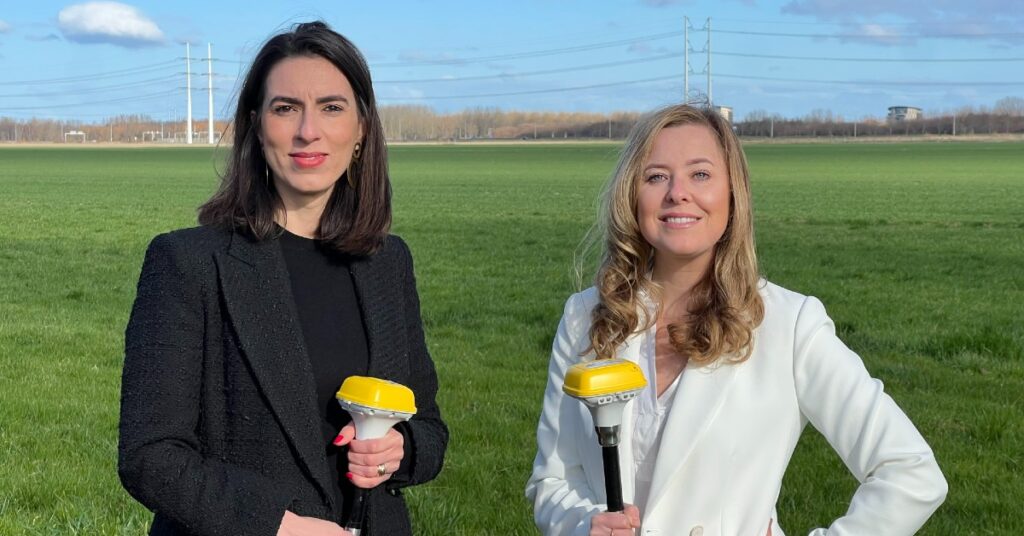
One of the traits common between these Dutch entrepreneurs is their ability to trust their team and hand over responsibility in their absence.
Van den Ende says she does not believe in getting briefed or receiving daily updates on work while she is away.
Such a process, according to her, will make it really hard to mentally disconnect. “I trust my Chief of Staff and COO to take decisions on my behalf,” she says.
De Klerk has streamlined the business communication to essentially checking in with his assistant while on holiday and deciding when to get involved.
Labfresh’s Brandi Petersen staunchly rejects the idea of checking in once a day or getting weekly briefings on business but adds that his co-founder is running the business so he can focus on growing it.
As a young and fledgling startup run by five human movement scientists, Makinde says group chat as an indispensable source for staying informed on all business matters.
“The team is wonderful in that they try to let you enjoy your time away but if you do want to check-in,” he says.
Bachtiar sees the need to check in multiple times a day and being in the loop vital to ensure that “company’s progress aligns with our vision.”
Agurotech co-founder Lilia Planjyan argues in favour of maintaining an open line of communication where everyone knows they can reach out at any time for unresolved matters.
“Joelle and I are available around the clock to ensure crucial decisions are timely and well-informed,” she says.
For business continuity, Van den Ende relies on preparing a hand-over plan. A handover is essentially a transfer of power or responsibility from one person or group to another.
She further adds that since her chief of staff is always in the loop on all business matters, they can take over immediately.
Brandi Petersen sees taking only a few days off at a time this summer as an effective tool to ensure business continuity. He agrees it is not a perfect solution but calls it the “best setup this summer.”
In addition to a streamlined communication, Bachtiar explains that Authic Labs has set up an efficient hierarchy to ensure every member knows their role in any decision-making process.
He adds, “Regular check-ins, combined with the trust I place in my team, keep our operations smooth.”
For Planjyan, business continuity is a team effort that requires planning since summer is a peak business period for Agurotech, she says they try to plan holidays outside this period.
Rite of passage
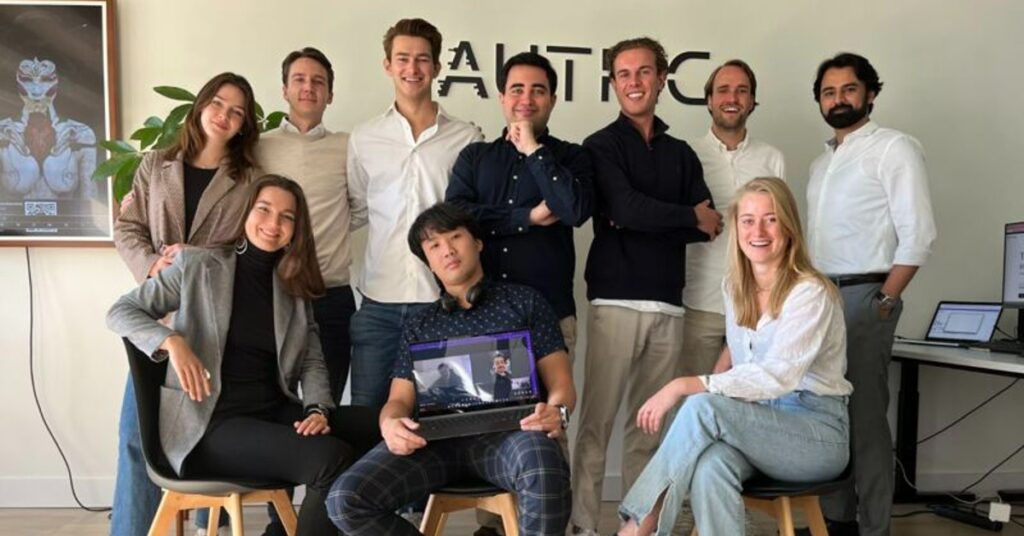
In December 2010, Jeff Kindler, CEO of Pfizer, abruptly resigned citing the extreme demand of “24/7 nature of my responsibilities.”
While business executives are usually portrayed as energetic and motivated people, there are instances like when Elon Musk was on the brink of tears due to the “excruciating personal toll” of leading Tesla.
Entrepreneurs are humans after all and they deserve to disengage just like their peers, colleagues, and employees.
But it is not easy. “Taking a summer break can feel very uncomfortable at first,” says Van den Ende.
As people who are completely addicted to being in the rush of things or in the need to know 24/7, it can be uncomfortable to not be able to check emails or work.
“I think it is good to acknowledge that discomfort and to accept it as very normal,” she adds.
De Klerk argues that all entrepreneurs should realise very early in their journey that they should take at least two weeks to unwind, read, think, and be energised to tackle future challenges.
Summer’s extended daylight hours, according to Planjyan, can inject joy into the life of even the busiest entrepreneur. She recommends engaging in leisurely walks, picnics, or morning swims.
“Amsterdam’s charm offers a myriad of opportunities to savour the season,” she says, “even brief pauses can be immensely energising.”
Brandi Petersen says the first step for every entrepreneur has to be empowering their management team. “Force everyone to rely on themselves for solutions instead of always coming to you,” he says.
Madglove’s Makinde acknowledges the difficulty in taking a break but argues that some things can involve inputs and influence of other businesses or organisations, who might be taking a break and your availability won’t change the outcome.
“So take advantage of the fact that everyone is taking a break,” he says.
But Bachtiar shows the mirror to the entrepreneurial world by explaining how sacrifice is seen as an entrepreneur’s rite of passage.
“It’s not about having less leisure but about being passionate about your vision,” he says.
One thing is evident. Even established entrepreneurs struggle to enjoy summer break and climate/economic challenge makes it even more difficult.
However, it is important for these entrepreneurs to enjoy some downtime as their vision impacts not just themselves, their employees, their community but the world at large.
Read the orginal article: https://siliconcanals.com/news/startups/amsterdam-entrepreneurs-summer-break-balance-work/


